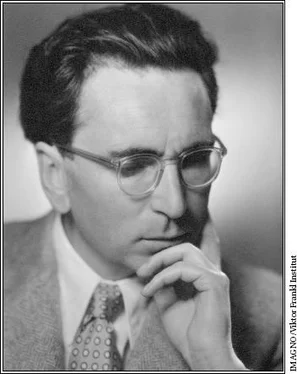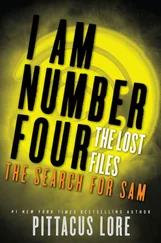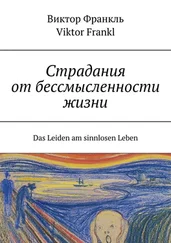The religious interest of the prisoners, as far and as soon as it developed, was the most sincere imaginable. The depth and vigor of religious belief often surprised and moved a new arrival. Most impressive in this connection were improvised prayers or services in the corner of a hut, or in the darkness of the locked cattle truck in which we were brought back from a distant work site, tired, hungry and frozen in our ragged clothing.
In the winter and spring of 1945 there was an outbreak of typhus which infected nearly all the prisoners. The mortality was great among the weak, who had to keep on with their hard work as long as they possibly could. The quarters for the sick were most inadequate, there were practically no medicines or attendants. Some of the symptoms of the disease were extremely disagreeable: an irrepressible aversion to even a scrap of food (which was an additional danger to life) and terrible attacks of delirium. The worst case of delirium was suffered by a friend of mine who thought that he was dying and wanted to pray. In his delirium he could not find the words to do so. To avoid these attacks of delirium, I tried, as did many of the others, to keep awake for most of the night. For hours I composed speeches in my mind. Eventually I began to reconstruct the manuscript which I had lost in the disinfection chamber of Auschwitz, and scribbled the key words in shorthand on tiny scraps of paper.
Occasionally a scientific debate developed in camp. Once I witnessed something I had never seen, even in my normal life, although it lay somewhat near my own professional interests: a spiritualistic seance. I had been invited to attend by the camp’s chief doctor (also a prisoner), who knew that I was a specialist in psychiatry. The meeting took place in his small, private room in the sick quarters. A small circle had gathered, among them, quite illegally, the warrant offcer from the sanitation squad.
One man began to invoke the spirits with a kind of prayer. The camp’s clerk sat in front of a blank sheet of paper, without any conscious intention of writing. During the next ten minutes (after which time the seance was terminated because of the medium’s failure to conjure the spirits to appear) his pencil slowly drew lines across the paper, forming quite legibly “VAE V.” It was asserted that the clerk had never learned Latin and that he had never before heard the words “ vae victis ”—woe to the vanquished. In my opinion he must have heard them once in his life, without recollecting them, and they must have been available to the “spirit” (the spirit of his subconscious mind) at that time, a few months before our liberation and the end of the war.
In spite of all the enforced physical and mental primitiveness of the life in a concentration camp, it was possible for spiritual life to deepen. Sensitive people who were used to a rich intellectual life may have suffered much pain (they were often of a delicate constitution), but the damage to their inner selves was less. They were able to retreat from their terrible surroundings to a life of inner riches and spiritual freedom. Only in this way can one explain the apparent paradox that some prisoners of a less hardy make-up often seemed to survive camp life better than did those of a robust nature. In order to make myself clear, I am forced to fall back on personal experience. Let me tell what happened on those early mornings when we had to march to our work site.
There were shouted commands: “Detachment, forward march! Left-2-3-4! Left-2-3-4! Left-2-3-4! Left-2-3-4! First man about, left and left and left and left! Caps off!” These words sound in my ears even now. At the order “Caps off!” we passed the gate of the camp, and searchlights were trained upon us. Whoever did not march smartly got a kick. And worse off was the man who, because of the cold, had pulled his cap back over his ears before permission was given.
We stumbled on in the darkness, over big stones and through large puddles, along the one road leading from the camp. The accompanying guards kept shouting at us and driving us with the butts of their rifles. Anyone with very sore feet supported himself on his neighbor’s arm. Hardly a word was spoken; the icy wind did not encourage talk. Hiding his mouth behind his upturned collar, the man marching next to me whispered suddenly: “If our wives could see us now! I do hope they are better off in their camps and don’t know what is happening to us.”
That brought thoughts of my own wife to mind. And as we stumbled on for miles, slipping on icy spots, supporting each other time and again, dragging one another up and onward, nothing was said, but we both knew: each of us was thinking of his wife. Occasionally I looked at the sky, where the stars were fading and the pink light of the morning was beginning to spread behind a dark bank of clouds. But my mind clung to my wife’s image, imagining it with an uncanny acuteness. I heard her answering me, saw her smile, her frank and encouraging look. Real or not, her look was then more luminous than the sun which was beginning to rise.
A thought transfixed me: for the first time in my life I saw the truth as it is set into song by so many poets, proclaimed as the final wisdom by so many thinkers. The truth—that love is the ultimate and the highest goal to which man can aspire. Then I grasped the meaning of the greatest secret that human poetry and human thought and belief have to impart: The salvation of man is through love and in love . I understood how a man who has nothing left in this world still may know bliss, be it only for a brief moment, in the contemplation of his beloved. In a position of utter desolation, when man cannot express himself in positive action, when his only achievement may consist in enduring his sufferings in the right way —an honorable way—in such a position man can, through loving contemplation of the image he carries of his beloved, achieve fulfillment. For the first time in my life I was able to understand the meaning of the words, “The angels are lost in perpetual contemplation of an infinite glory.”
In front of me a man stumbled and those following him fell on top of him. The guard rushed over and used his whip on them all. Thus my thoughts were interrupted for a few minutes. But soon my soul found its way back from the prisoner’s existence to another world, and I resumed talk with my loved one: I asked her questions, and she answered; she questioned me in return, and I answered.
“Stop!” We had arrived at our work site. Everybody rushed into the dark hut in the hope of getting a fairly decent tool. Each prisoner got a spade or a pickaxe.
“Can’t you hurry up, you pigs?” Soon we had resumed the previous day’s positions in the ditch. The frozen ground cracked under the point of the pickaxes, and sparks flew. The men were silent, their brains numb.
My mind still clung to the image of my wife. A thought crossed my mind: I didn’t even know if she were still alive. I knew only one thing—which I have learned well by now: Love goes very far beyond the physical person of the beloved. It finds its deepest meaning in his spiritual being, his inner self. Whether or not he is actually present, whether or not he is still alive at all, ceases somehow to be of importance.
I did not know whether my wife was alive, and I had no means of finding out (during all my prison life there was no outgoing or incoming mail); but at that moment it ceased to matter. There was no need for me to know; nothing could touch the strength of my love, my thoughts, and the image of my beloved. Had I known then that my wife was dead, I think that I would still have given myself, undisturbed by that knowledge, to the contemplation of her image, and that my mental conversation with her would have been just as vivid and just as satisfying. “Set me like a seal upon thy heart, love is as strong as death.”
Читать дальше












